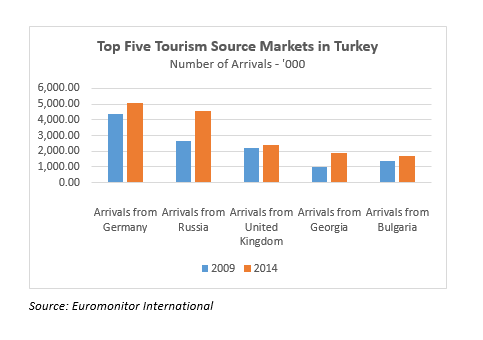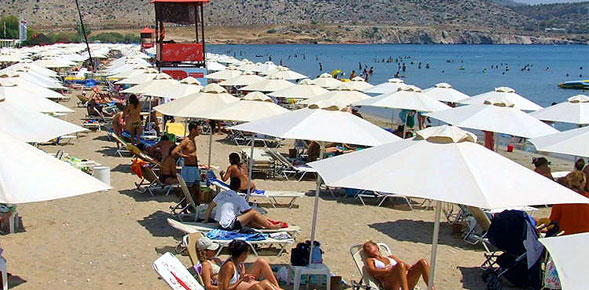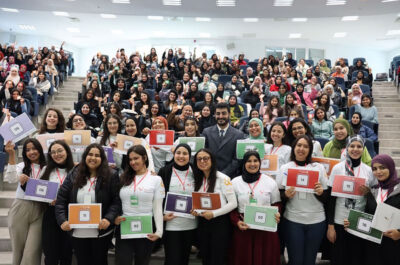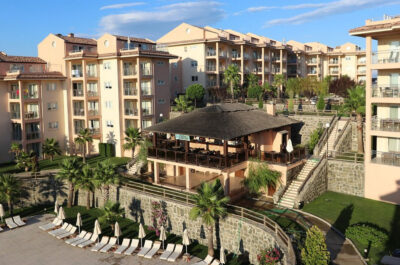Turkey is the most popular leisure tourism destination for Russians, with more than 4.5 million trips being done from Russia to Turkey in 2014 according to Euromonitor International. For Turkey, Russia is the second leading source market after Germany.
Euromonitor International data show that:
- Russia represents the second tourism source market for Turkey, after Germany
- Russia also represents the fastest growing tourism source market in terms of absolute growth, with +1.9 million arrivals from Russia to Turkey between 2009 and 2014
- Trips to Turkey from Russia almost doubled between 2009 and 2014, from 2.7 million to 4.5 million respectively
Marija Milasevic, Research Manager – Services & Payments, Euromonitor International, says “Turkey is the most popular leisure tourism destination for Russians, with more than 4.5 million trips being done from Russia to Turkey in 2014 according to Euromonitor International. For Turkey, Russia is the second leading source market after Germany. There are no doubts that the current tense situation between Russia and Turkey, which escalated after Russian plane was shot down by Turkish forces, will have negative influence for both countries. The Russian government already banned travel agencies to sell tours to Turkey. How significant this issue affects tourism in both countries will depend on the duration of the restrictions. In case the ban for trips to Turkey lasts until the summer when there is a high season, a lot of Russian tour operators and travel agencies will suffer significantly. As a result, a growing number of bankruptcies are predicted in local travel retail. At the same time, Turkey will suffer from decreasing number of tourist in the country, as Russia is crucial source destination. Even if Turkey tries to attract tourists from other countries, it will not make up losses from Russia.

November became a black month for Russian outbound tourism. Before the Turkish issue, local authorities also banned trips to the second largest outbound leisure destination of Egypt, after terrorists attacked the plane with Russian tourists. However, some Russian tourists are creative and do not want to refuse traveling to their favourite budget destinations. They started to travel to Egypt from neighbouring countries. For instance, Belarus noted significant increase of tours to Egypt.”
The impact of terrorists attacks on Tunisia and other MEA countries
Kinda Chebib, Senior Analyst, Euromonitor International, says “A state of emergency was declared in Tunisia on the 24th of November after an explosion struck a bus carrying members of the presidential guard, killing at least 13 people. The fear of repeat attack shave led to 3,500 British tourists leaving Tunisia since the attack by a militant killing 38 tourists at the resort of Sousse in June 2015. The Foreign Office had updated its travel advice since that month to “Further terrorist attacks in Tunisia, including in tourist resorts, are possible” The previous March museum attack and the June beach events could have led to short to medium term negative impacts; however with this new attack, Euromonitor expects an economic impact on the medium-to-long term, with Tourism being the industry suffering the most.
In North Africa and Levant region, several destinations hit repeatedly by terrorists attacks are expected to see an economic slow-down and decrease in arrivals as well as investments in the forecasts.

The clearest examples were Egypt and Tunisia. Egypt, which started the year of 2013 with high visitor numbers but then experienced a strong drop as a result of the political unrest and repeated terrorist attacks. Since then, the country saw an average annual decline in UK visitor numbers of 18.5% from 2010 to 2014. No other major tourist destination regularly visited by British tourists have been that negatively impacted. British arrivals to Tunisia declined from 423,000 in 2010 to 360,000 in 2011, year of the Tunisian revolution. The figure has since recovered, reaching 440,000 in 2014. However average spending by UK tourists fell from £178m to £143m from just 2010 to 2014. Key players in the travel industry in those two countries have implemented since then some strong price cutting in an effort to lure back tourists. However in a context of general fear and risks, those strategies do not pay back, especially when it comes to British tourists and investments.
If we take the case of Morocco, there was strong growth in terms of arrivals from the UK, rising from 308,000 in 2010 to 460,000 in 2014. It is interesting to keep in mind that this included a 51,000 increase in arrivals in 2012, one year after the Marrakesh bombing. This shows that when terrorists’ attacks are not recurrent, the impact on major tourism destinations tends to be on the short-term. The London bombings of July 2005 (killing 52 people confirm this theory didn’t impact on the number of arrivals. In contrast, figures suggest that the tourism industry in countries enduring long-term conflicts, such as Egypt, will be impacted on a larger level.”
Theodore is the Co-Founder and Managing Editor of TravelDailyNews Media Network; his responsibilities include business development and planning for TravelDailyNews long-term opportunities.































































































































































































































